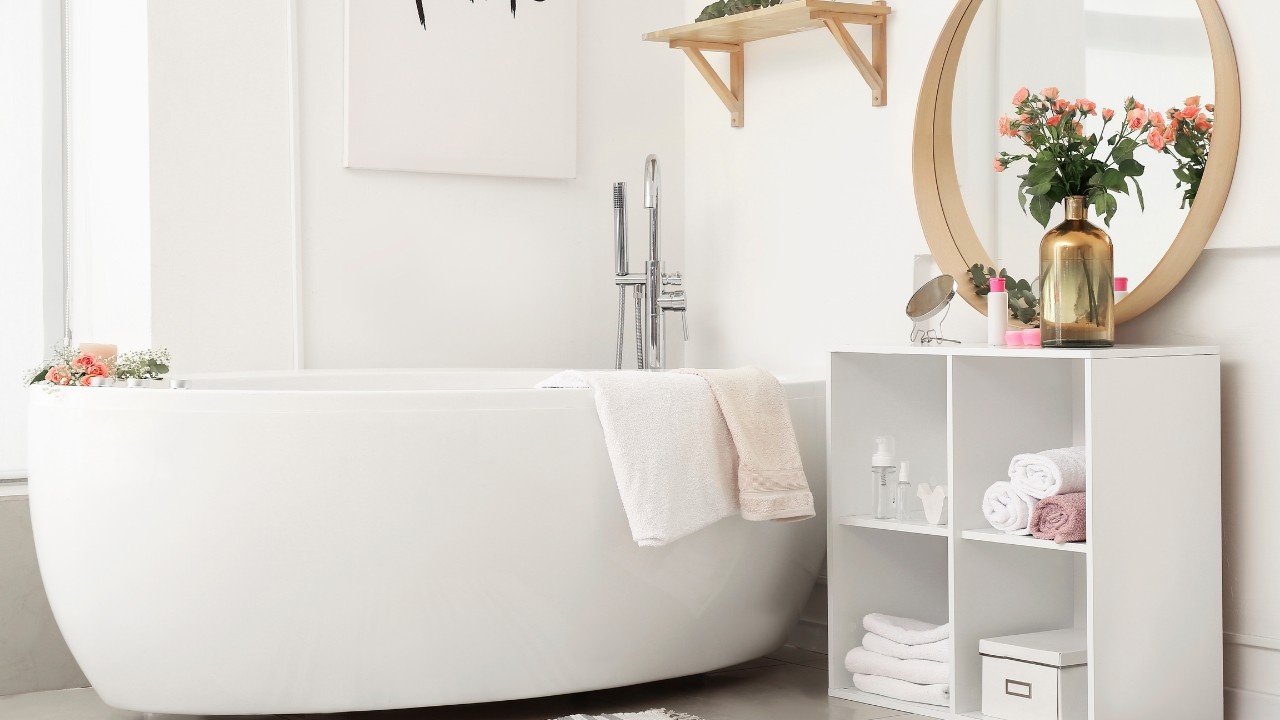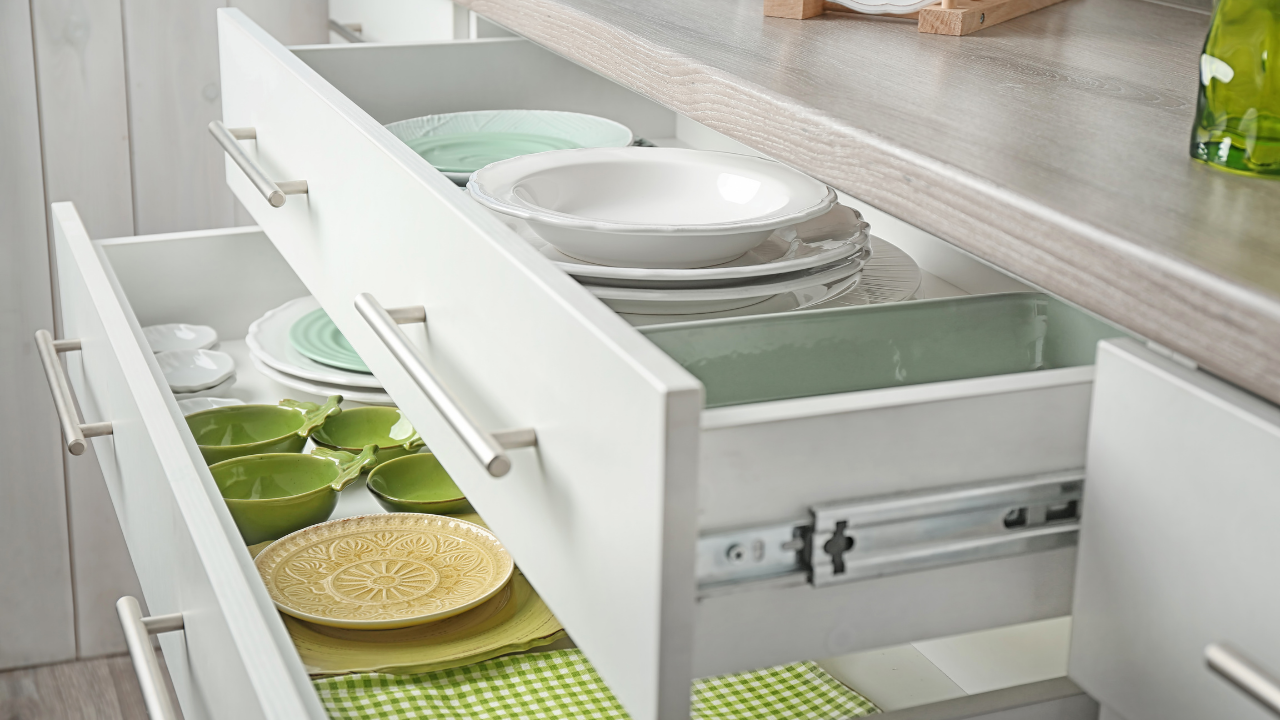The Magic of Decluttering

Have you ever experienced looking for something but can't seem to find it?
It's not where you remember last seeing it... So you turn your room upside down and exhaust all efforts but to no avail. Later, when you aren't looking for it, it appears magically! Far from being magic, it's probably because of clutter!
Clutter is defined as a collection of things lying about in an untidy mass. It can also be a condition or disorder or a large amount of confusing information. Disorganised possessions take up space, generate chaos, and invite negative energy into your home. Disarrayed closets, stacks of dishes in the sink, mountains of dirty clothes in the laundry basket, and too many unused things in the house: do any of these ring a bell?!
Building a mess does not happen overnight. For example, when you don't assign spaces to store your things, you end up leaving them everywhere, thinking to tend to them later. Constantly doing this becomes the source of accumulated clutter. Then clutter becomes the source of your stress, sleeplessness, allergies, and other things you could not imagine from simply not tidying up. Sometimes, even if you are organised, clutter may still build-up, for example, when you buy too many objects you think you need but don't, and when you are too sentimental and get attached to things. All these can result in a disorderly environment that can harm your health and well-being.
How does our environment impact our lives?
Research has shown that our physical environments affect our health, cognition, emotions, and subsequent behaviours that can impact even our relationships with others. For example, a peaceful and visually appealing home or office setting can create a greater sense of well-being than a cluttered and chaotic home.
Decluttering, or getting rid of the mess, will bring about an immediate energy shift. Your space will feel lighter and calmer. The positive chi or good energy will flow, making you more energetic and enthusiastic about doing your work. You will also find it easier to relax at the end of every day.

What are the benefits of decluttering?
If you are looking for ways to reduce stress, increase productivity and improve your life, putting things in order and getting rid of too much stuff is an excellent place to start. Decluttering your space will make you feel in control. It will increase your productivity and make you feel fantastic.
1. Decluttering gives us higher self-esteem and makes us happy.
Having trouble staying organised results in feelings of inadequacy and insecurity. Seeing the disarray of things bombards our minds with excessive stimuli and causes our senses to be overwhelmed. It distracts us from our tasks causing us to procrastinate. Improving your living or working space immediately restores feelings of competency and pride.
When done correctly, decluttering can be a form of release. It feels physically and emotionally relieving our excess baggage in our surroundings and minds. A tidy room is brighter and airy, contributing to a feeling of optimism.
2. It increases our focus and productivity.
Our brain seeks order. Getting constant reminders of disorganisation drains our cognitive resources, which reduces our ability to focus. Even if we don't think about it, clutter can make it difficult to get tasks done and live orderly. You will constantly find things you need, potentially taking time away from more essential routines. This brings about stress and negative energy daily.
Eliminating visual clutter and putting things in order can help us focus better on tasks. In addition, Clutter-clearing makes our space conducive for work, increasing our efficiency in undertaking our responsibilities.
3. It induces better sleep.
The chaotic environment we are in is processed by our brain as a job to be completed. This has been confirmed on a conscious and subconscious level. For example, people with cluttered bedrooms find it challenging to sleep. They also get easily bothered in the middle of their slumber. This is because our distracted mind and tired senses find it challenging to relax.

Sleep can be improved by routinely making the bed upon waking up. Then, at bedtime, seeing a mattress all made up and ready for rest feels inviting.
4. A decluttered home improves our mental health.
According to studies, there are higher stress hormone levels, cortisol, in people with cluttered home environments. If this happens daily, our body releases the hormone responsible for our fight-or-flight response. Instead of being a sanctuary for us to unwind, our home becomes an obstacle we need to overcome. It may lead to chronic stress and anxiety.
Planning to declutter immediately lifts a significant weight off our minds. It makes us feel optimistic and clear-minded. Undertaking the project one day at a time relieves substantial stress and makes us feel good about ourselves.
5. It promotes overall good health.
Wouldn't you love to prepare food in a spotless and organised kitchen? Unfortunately, unclean environments can lead people to eat more fast food (less healthy choices) than a tidy kitchen environment. It has also been found that people with clean houses are more active, ensuing better overall health.
Untidiness also impacts the quality of our sleep. Like a domino effect, lack of sleep upshots to a battery of other physical problems, including impaired immunity response, high blood pressure, and obesity.
The buildup of piles of seldom used things will also accumulate dust mites, mould, mildew, and other pests. This will be a problem for those with allergies. In addition, sneezing, wheezing, and itchy eyes will be part of their day. Avoid these by incorporating the practice of decluttering in your daily or weekly routine.
6. It brings about healthy relationships.
Some environments can facilitate interactions, while others won't. For example, if you have a cluttered home, you will avoid inviting guests. This may take a toll on your relationships, leading to feelings of loneliness and inadequacy.
Maintaining a romantic relationship is rarely easy. Clutter causes tension for both partners and may even be a frequent topic of conversation or argument. Sometimes, the organisation of the home becomes a point of contention. Being open about how you feel about clutter with your partner leads you to agree on approaching the problem together.
7. Clutter-clearing attracts positive energy and abundance.
Suppose your walkways are filled with boxes, random objects, or too much furniture, the risk of tripping and falling increases. These also block the flow of positive energy. Sifting through these can be overwhelming and stressful. It will not be conducive to attracting high-frequency feelings.
Visualising your dreams can be compromised if you are surrounded by chaos. You will not be able to state your intentions clearly because your disarrayed space will hold you back. It will be difficult to manifest your dreams in a cluttered environment.
In addition, clutter can be directly linked with a mindset of lack. By keeping the things you believe you will need in the future, you seem to tell the universe that you won't have money to buy them when you need them. This lack mindset averts you from stepping into the world of abundance. On the other hand, if you keep your space open and clean, you invite the universe to give you more.
We all have a strong need for comfort, safety, and security. We constantly look for these in choosing the habitat where we live. However, as what we surround ourselves with can influence our moods, behaviours, and motivation to act, it is essential to prioritise clearing up our personal and work environment.

Tips on how to start decluttering!
Our home, workplace, and car are the environments we are exposed to each day. It is vital to ensure that positive energy is freely flowing in these spaces. (CLICK HERE TO LEARN MORE – FENG SHUI BLOG) Once you decide to keep your place tidy, start gradually. Remember that you are doing this to reduce your stress levels, so start to live a 'clutter-free' life and feel the instantaneous results of lightness and freedom.
Decluttering your home
1. Take baby steps and start small
If you are new to decluttering, you can start by taking five minutes each day to put back items in their proper places. You can also start with a single drawer or basket. Then, add more areas to clean each day as you build momentum.
2. Create a checklist
Any project that starts with careful planning will likely be successful. Look at your space and decide which areas need clearing. Prioritise these spaces as you list them. Please tick the boxes one at a time as you finish them. Doing this will add to the satisfaction and sense of achievement, which will motivate you to continue until all items have been ticked.
3. Keep the positive
Remember that everything has energy. The energy of the objects we choose to have in our environment should uplift and burst with positivity. In deciding whether to keep something, we ask them questions, "Do we love it, use it, and need it? Does it uplift our energy?" If the answer is yes, then the object in question is meant to stay.
4. Donate
After carefully sorting and deciding to keep the things you love, use, and need, put the rest in a box and put it straight in your trunk. Drop it to your favourite charity or loved one when you go out.
Decluttering your workplace
1. Do it daily.
According to Forbes it is good to allow five to ten minutes each day to clean your work area, especially if you are working from home. You can do it before you start working and after. Tidy your desk and give it a little wipe. Leave on your desk only those experience things that you frequently use. Give everything a home and always put them there when not in use. Include this in your routine. Soon, you won't even feel like you are decluttering.
2. Go through your paper files.
Deal with physical hardcopies first. Sort the essential files and put them inside labelled folders. Then, scan them for digital copies and organise them on your computer if you can. Save them with clear file names to make it easier for you to search for them later.
3. Sweep your computer (or other devices) and your inbox.
For a few minutes each day, go through your folders and delete the files, notes, and images you won't need. You don't have to do it in one sitting. Freeing up your space will improve the processing speed of your device and improve your productivity as well.
Browse through your messages and move to trash those that don't need saving. Flag the ones that need your attention within the week. Do the same with your inbox.
Decluttering your car
1. Steer clear of the trash.
Start by picking up and sorting random objects lying on your centre console, dashboard, glove box, and floor of your vehicle. These may be coupons or receipts that you won't be needing. Throw them away. Check the trunk and discard what you don't need in your daily drive. If you have a box for donations, drop it by the charity at once.
A portable vacuum comes in handy to freshen up the interior of your car. Make it a habit to do it at least once a week.
2. Place bins for loose change and whatnots.
Provide a home for parking money, a clip for small papers, and other containers for your cards, cups, and others. Use these properly and wipe them clean frequently.
Keeping cleaning or disinfecting wipes in your door pockets is a good idea. You can do some spot cleaning when you are stuck in traffic or waiting for someone in your car.
3. Get a car wash.
A quick drive to the car wash will be something you will feel good about at least once a month. Studies have shown that people become happy after going to a car wash, even when they can't see the outside of their car.
Finally, if you find that decluttering is hard for you…
Decluttering can be especially hard for people with Hoarding Disorder. People with this disorder cannot organise and manage their things. They have difficulty getting rid of possessions due to a perceived need to save the items. If you feel scared to let go of things and see throwing things out as a distressing and painful experience, it is best to seek professional help.
Rapid Transformational Therapy (RTT)
If you're having trouble channelling your thoughts and you're feeling lost on what you really want to prioritise, let me help you out. Consider a consultation with Mind Motivation Coaching on Rapid Transformational Therapy.
RTT combines the best practices from Neurolinguistic Programming, Psychotherapy, Cognitive Behavior Therapy, and Hypnotherapy to deliver fast and outstanding results. Through hypnosis, RTT can gain access to the mind's subconscious to discover and change or reprogram certain beliefs acquired through the years that stop one's growth and peace of mind. This experience will also allow you to uncover the factors blocking you from achieving a well-balanced life.
RTT can be applied in different aspects of one's life like self-confidence, healing from past traumas and abuse, quitting addictions, stopping unhealthy habits, and countering the effects of stress, lack of sleep, anxiety, and depression.
You are the master of your life. Choose the thoughts, actions, and words to help you grow into a better person. Continue to envision the changes you want to happen, and don't stop believing they're possible!

